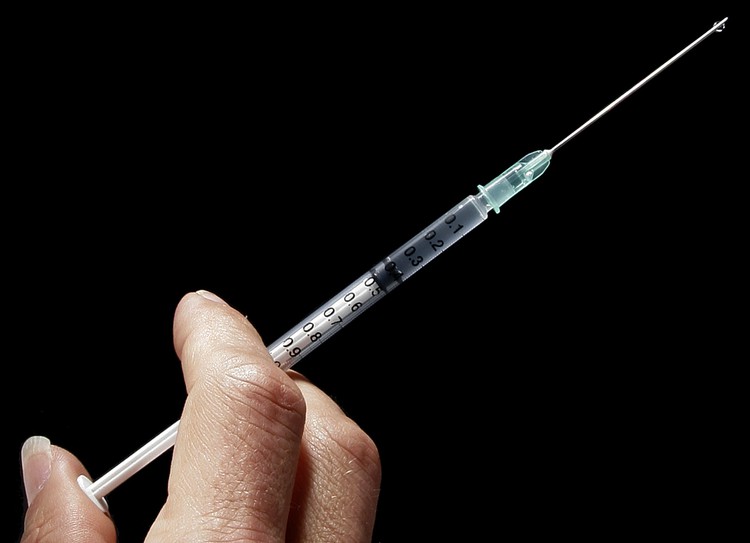New HIV prevention injection shown to be very effective
“Cabotegravir dosed every two months can successfully reduce HIV acquisition in at-risk MSM and transgender women”
An HIV prevention technique that involves HIV-negative people at high risk of infection getting an injection every two months has been found to be successful in a clinical trial. Photo: Armin Kübelbeck (CC-BY-SA via Wikimedia Commons)
A new form of HIV prevention medicine which is injected every two months is effective, according to the interim analysis of the HIV Prevention Trials Network (HPTN) 083 study. HPTN 083 compares cabotegravir, a drug developed by ViiV Healthcare, a specialist HIV company majority owned by GlaxoSmithKline, with Pfizer and Shionogi Limited as shareholders, with the current standard in HIV prevention medication.
The HPTN 083 study focused on HIV-negative men who have sex with men and transgender women who have sex with men, in North and South America, Asia, and Africa. The study directly compared the current standard, which is emtricitabine/tenofovir disoproxil fumarate 200mg and 300mg tablets (FTC/TDF), which are taken every day by HIV-negative people, with the new cabotegravir treatment, which is injected every two months.
Out of approximately 4,600 participants, 50 people in the trial acquired HIV, with 12 in the cabotegravir group, and 38 in the FTC/TDF group. This showed that cabotegravir was 69% more effective than daily pills at preventing HIV acquisition in this trial.
Dr Myron Cohen, one of the trial investigators, said: “Each year, an estimated 1.7 million people are newly diagnosed with HIV. To lower that number, we believe more prevention options are needed in addition to currently available oral tablets for daily use. If approved, a new injectable agent, such as long-acting cabotegravir administered every two months, could play an important role in reducing HIV transmission and helping to end the HIV epidemic.”
The next stage is for the companion study, HPTN 084, to be completed. HPTN 084 began a year after HPTN 083, and is testing the effectiveness of cabotegravir in women, with more than 3,000 sexually active women in seven African countries enrolled in the study.
FTC/TDF tablets form the core of Pre-exposure prophylaxis (or PrEP), which are daily medicines taken to prevent HIV, particularly by people who are at a greater than usual risk of infection. PrEP has been identified as one of the keys to slowing and stopping HIV transmission.
Between 44,000 and 45,000 people use PrEP in South Africa, according to April 2020 data from PrEP Watch, a website run by the AIDS Vaccine Advocacy Coalition, a New York-based non-profit organisation.
According to the Thembisa model of the South African HIV epidemic, the source on which the official UNAIDS estimates for South Africa are based since 2017, there are more than 7.5 million people with HIV in South Africa in 2020, and 190,000 new infections in 2019. About 63% of infected South Africans are women.
There have been huge successes since the peak of the epidemic from 1996-2004, when there were more than 500,000 new infections every year, and a peak of over 280,000 AIDS deaths a year in 2004 and 2005. Nevertheless, South African is still the country worst affected by the HIV pandemic, with an estimated 62,000 AIDS deaths projected in 2020 by the Thembisa model.
Support independent journalism
Donate using Payfast

Don't miss out on the latest news
We respect your privacy, and promise we won't spam you.
Next: “The City needs to stop destroying shacks, at least until the lockdown is over”
Previous: Doubts over Compensation Fund’s ability to pay out for Covid-19 claims
© 2020 GroundUp.
This article is licensed under a Creative Commons Attribution-NoDerivatives 4.0 International License.
You may republish this article, so long as you credit the authors and GroundUp, and do not change the text. Please include a link back to the original article.

